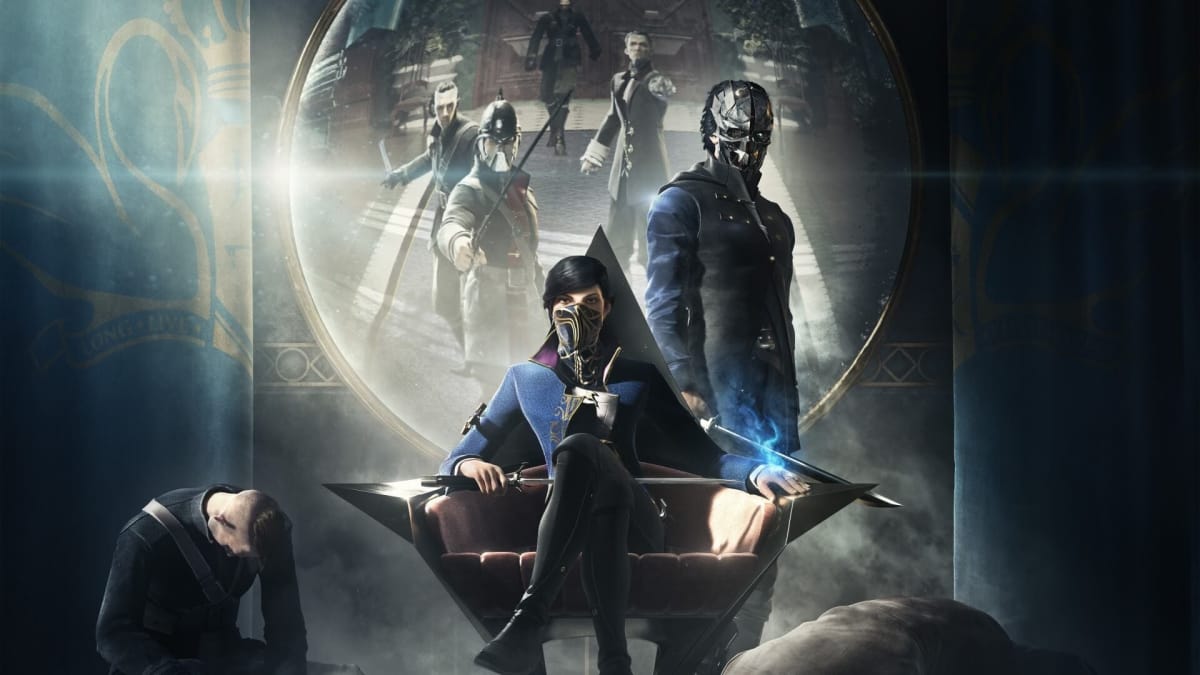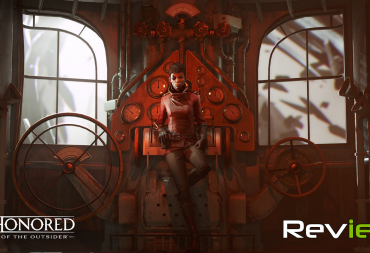I am always suspicious of RPGs based on official licenses; Dishonored: The RPG was no different. Usually with licensed RPGs they go in two directions, either adding numbers to everything the source material mentions with no creative license taken for personal expression, or treating the setting from a lore and atmosphere perspective while making the rules numbers-lite and narrative heavy, losing certain details in the process. Modiphius decided to go in the latter direction for this RPG, which I think was a smart direction for a setting so rich in storytelling potential as the one here. While it does a lot to expand and flesh out the Empire of the Isles beyond the original source material, there are a few odd oversights in the core rules that make running the game a little rough in spots.
In terms of structure, the rulebook of Dishonored: The RPG is decent enough. The first few pages illustrate a game being played by regular PCs done like a comic book in the dark expressionist art style of the video games, showing off the dynamic possibilities for the system. The book then goes into very basic broad themes and ideas the setting is known for, setting up the ideas of Order vs. Chaos, the various political systems of the various islands in the world, and the very foundation of their industrious development built on harnassing whale oil. It gives a general idea of the world for those not familiar with the source material before finally jumping to character creation. It left a solid enough idea as to where the the focus for the game would be, and I did appreciate how it makes an effort to bring players in who aren't as familiar with the lore of the setting without it being frontloaded in the book. Built-in audience or not, inclusivity is always a plus.
But what did stick out to me is the lack of accessibility and general quality of life elements. I am not entirely familiar with Modiphius' 2d20 system – which they have used for other licensed RPGs like Star Trek and John Carter – and what was explained in the book was understandable to an extent, but I spent more time flipping through pages for references and rule clarifications more than I like. The system itself is a very simple affair, reminding me of the better narrative elements of FATE and the Storyteller system, but a simple cheat sheet or reference chart for the game's various items, talents, and abilities would have gone a long way to keep sessions going at a brisk pace. There was also the fact that the stylized comic panel explanations, while visually appealing, never held the same direct clarity and explanation as a text box does.
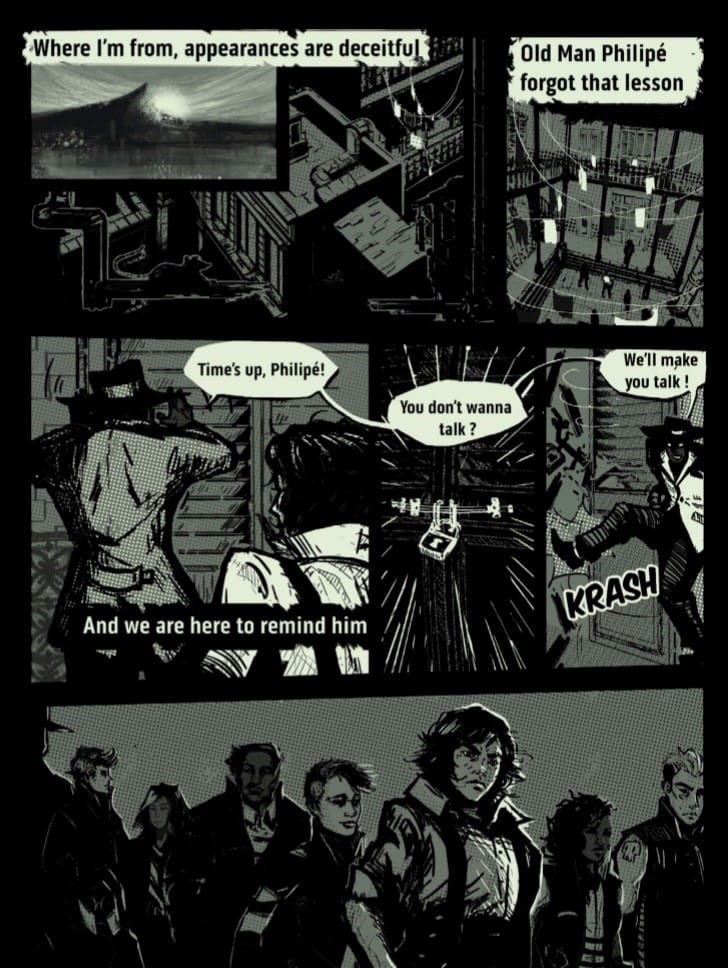
Thankfully, Dishonored: The RPG does have some unique mechanics to help bring its supernatural steampunk-style world to the table. There is a Truth system which can express undeniable facts about various characters and scenes, simple phrases like is on fire or emotionally overwhelmed can give a strong thematic or narrative reason why certain characters or areas would be more or less receptive to ideas and moves made by the players. There isn't a strong numbers-based feature for these truths, but for the sessions I ran it seemed that a simple +2 to the DC or treating it as narrative fiat was more than enough to give the players a sense of agency.
There is a noticeably higher chance than most RPGs of players failing challenges with the rules here, but thanks to the Momentum and Chaos systems it felt more like a feature than a bug. Chaos points are added to the game whenever players do something reckless or chaotic like cheat, steal, destroy property, or indiscriminately kill. Also, every single time a player fails a check or a contest, the GM can give them the option to add points to the Chaos pool in exchange for a pass or a re-roll. These points can then be spent by the GM to bring in unexpected obstacles into future scenes, anything from letting a Big Bad get to attack again to adding the Truth of swarmed by plague rats to a scene on a boat. It is a brilliant way to incorporate the Chaos system found in the Dishonored videogames into an RPG setting since it lets the players understand that their actions will affect things down the line while allowing the GM a budget on how to enact karmic retribution. On the flip side of this is Momentum, a pool of points shared by the players that increases if they roll multiple successes over what the GM set for a challenge, giving them similar control over anything they attempt such as pulling off elaborate stunts or adding helpful Truths to scenes. The only difference is there's a limit to how much Momentum can be held at a time, and if they are not spent they slowly vanish; Chaos has no limit and can be used by the GM at any time.
This same flexible back and forth can't exactly be shared by character creation. Dishonored: The RPG doesn't have traditional Classes but thirteen distinct archetypes, Assassin, Commander, Courier, Duelist, Entrepreneur, Explorer, Guide, Hunter, Inventor, Sharpshooter, Scholar, Scout, and Miscreant, which does cover a lot of specific kinds of campaigns. Socialite skullduggery, underground fighting rings, the dangers of scientific expeditions, and even the cutthroat world of assassination and secret conspiracies are all covered with these character types. Each one of these archetypes have their own distinct talents which players can unlock through play, and each one has their strengths, be it swordfighting or wordplay.
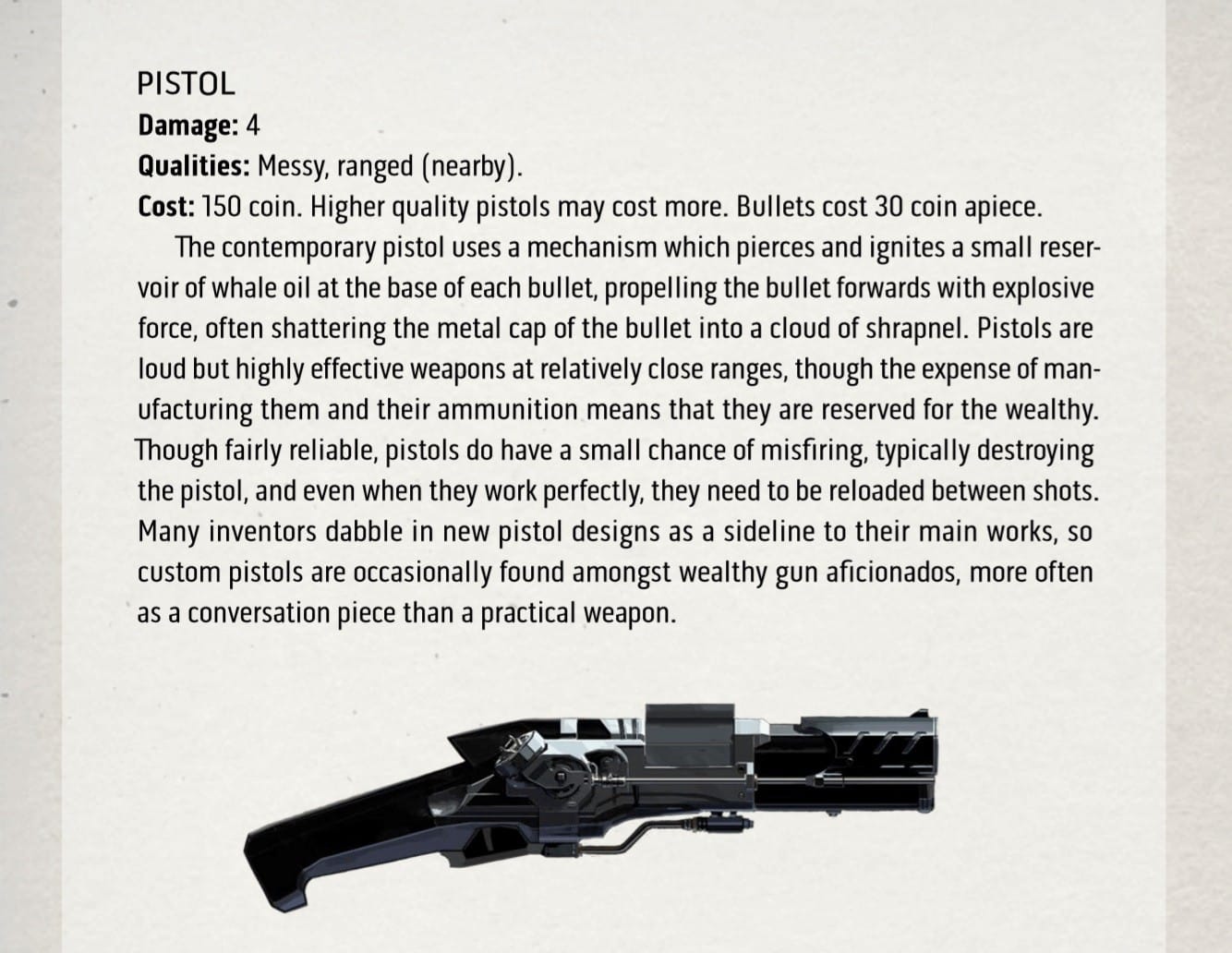
What really lets it down is the sparse starting equipment and bizarre economics. Each archetype gives you 150 coins to buy gear, which seems generous at first until you realize that a pistol with no bullets and a fancy party suit cost exactly 150 coins each. There's also very little in terms of roleplay-central items or diverse utility items, it's mostly just weapons and armor making the whole system feel half-baked. There is an in-depth invention and upgrading system where dedicating money and time to an item can give it additional abilities and even a Signature Item feature which can give your players a sense of personal style, but it still highlights just how single-minded the item selection is.
There are also odd numerical representations as well when it comes to expressing key characters from the games. For example, Corvo Attano, the main protagonist of the first Dishonored game, Royal Protector of the Empress of the island of Gristol, master assassin and one of the greatest swordsman in the world has the same level of Fight as a regular City Watch Guard. Yes, really.
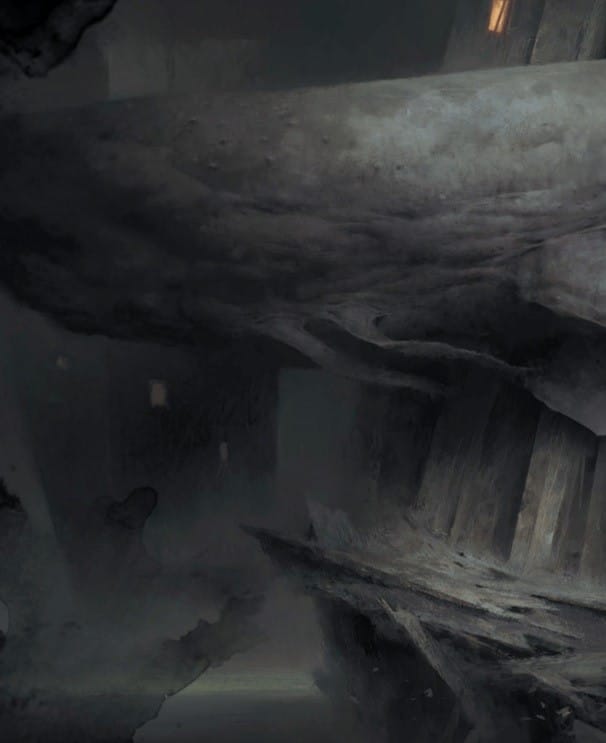
The biggest unique selling point for the system is the ability to get supernatural powers, and it works... mostly. One of the general talents you can get during character creation is to be marked by the Outsider, the omnipotent godlike figure of the Dishonored world, and get magical powers. Credit has to go to Modiphius here because not only did they try to express some of the more iconic powers from the games into an RPG format like slowing down time or the blink teleport, they did also introduce more versatile abilities such as Eye Within which lets players immediately see the Truths of every single person in a single scene, which is great for social leverage and roleplay potential. However, there aren't too many items in the core book to allow for recovery or multiple uses of powers. It makes sense to not overshadow the ability of players who don't choose to be marked, but it can also make certain powers not be worth the effort. Also, if multiple players choose to be marked, there isn't a very large selection of Void powers and enhancements to pick from, which can lead to a lot of overlap. There are no explicit rules stating this isn't allowed, but in the sessions I ran I homeruled that only one PC in the group could be marked to allow for character diversity and verisimilitude to the setting, as there's a mention in the game's lore that only eight people can be marked by the Outsider in the entire world of Dishonored at any one time.
This does highlight the system both at its best and at its worst. In terms of setting, worldbuilding, and expressing the core themes, Dishonored: The RPG gets a lot right. Get your players into the right mindset and you can experience so many adventures that make the videogames feel quaint by comparison. An expedition to the mysterious Pandyssian continent, fighting off pirates on the turbulent seas, carrying out a conspiracy against the royalty of Morlay, all of these are narrative ideas the book gives you and gets the imagination running wild, breaking away from just being about supernatural assassins getting revenge on backstabbing aristocrats. This can be disarming to those expecting a direct action-packed translation of the videogames, but it's a creative direction I am glad the developers took since it shows that the world of Dishonored is a lot more than just the city of Dunwall and the adventures of Corvo Attano. But the actual text and mechanics come with odd logic gaps that either have to be filled by understanding the original source material or creative interpretation by the gamemaster.
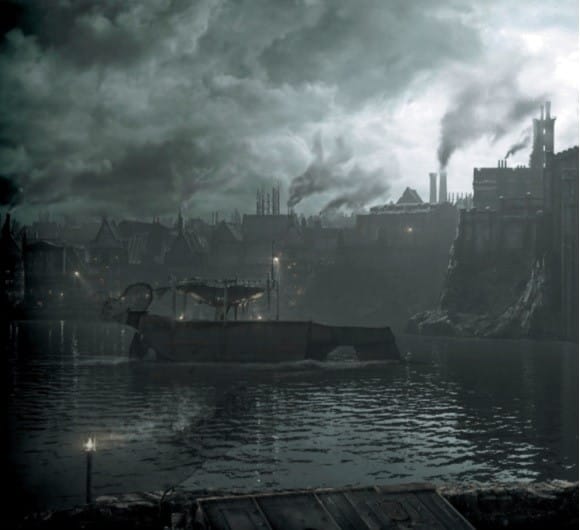
The Bottom Line:
If you're a big fan of Dishonored and want to explore more of its world with friends, then this RPG will have you covered. There's just enough information and lore to bring in newcomers and there's plenty of unique setting material for those who have played all the games. The system is light and heavily encourages narrative, long-term investment, and in-depth roleplaying from everyone at the table, which helps keep tensions high if and when blood starts to fly. But you may have to be creative when it comes to fleshing out and refining some of the more undercooked parts of the system for those looking for a more numbers-driven experience.
Get This Game If:
- You're A Big Fan of Dishonored
- You Want A Narrative-Driven Campaign Set In A Unique Victorian/Steampunk World
- You Want Your Group To Carefully Consider The Consequences of Their Actions
Avoid This Game If:
- You Need More Explicit Specific Rules
- You're Looking For Something More Feature Rich
- You Want Something More Action-Oriented
The Dishonored RPG was reviewed on PDF provided the by publisher.
Review Summary
Have a tip, or want to point out something we missed? Leave a Comment or e-mail us at tips@techraptor.net
